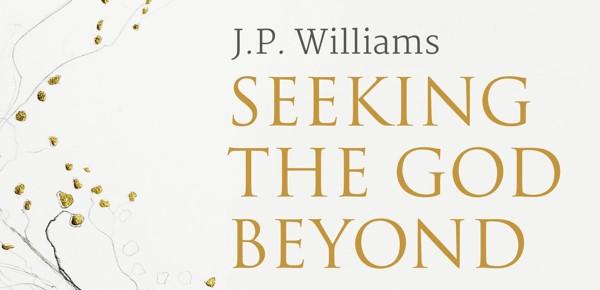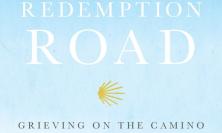I was eighteen years old when I first started spiritual direction. At our first meeting, my spiritual director gave me a copy of The Cloud of Unknowing. I would later discover that The Cloud of Unknowing is a classic text in apophatic spirituality, the practitioner of which seeks an experience of God freed from the shackles of human concepts, categories, images and thought itself. Apophatic spirituality aims at the experience of God, pure and simple. As an eighteen-year-old, I had never heard of apophatic spirituality. As with many Christians, young and old, my prayer took the form of cataphatic spiritual practices, i.e., spirituality that relies on words, ideas or images: attendance at Mass, regular examinations of conscience, scripture and rote prayers. My spiritual life consisted of this cataphatic scaffolding, external practices designed to construct a Christian edifice. By contrast, The Cloud of Unknowing, as with most apophatic treatises, urges the reader to forget about the scaffolding and to allow God to do the constructing from the inside. I quickly realised that cataphatic scaffolding – liturgy, rosaries, scripture study, etc. – was ‘safe’ prayer, whereas apophatic spirituality – wordless abandonment to a God I cannot see or know – was risky. But risk isn’t always such a bad thing.
My impression is that my first encounter with apophatic spirituality is not atypical. Not only is apophatic spirituality seldom preached about or introduced in religious formation, but books on apophatic spirituality can, at first glance, seem hopelessly obscure. J.P. Williams’s Seeking the God Beyond: A Beginner’s Guide to Christian Apophatic Spirituality is a notable exception and a welcome companion for those who feel called to a relationship with a God who exceeds thought and imagination. Williams’s clear and engaging style as well as her extensive knowledge of the apophatic tradition make this book a fruitful and enjoyable read.
The title of the book requires some explanation. ‘Seeking the God Beyond’ is an excellent description of apophatic practice. ‘Beyond’ here refers to beyond thought, words and images. However, Williams does not mean to suggest that God is somewhere out there, majestically removed from the prayerful subject. Rather, the search begins in the depths of the human heart, where God is already present and ready for encounter. Furthermore, Williams’s book is not a ‘beginner’s guide’ in the sense that it will teach the reader how to pray apophatically. Apophatic prayer is not like putting an IKEA desk together; there is no instruction manual to apophatic practice. Thus, the lack of practical advice should not be considered a shortcoming of the book. For those who do pray apophatically, however, or for those who simply feel God urging them to a relationship that is deeper than words can express, Williams’s book offers a language for expressing the dynamics of such prayer as well as an assurance that the seeker is not alone.
Williams divides the book into five sections of four chapters, each of the chapters relatively short. The first section illustrates apophatic spirituality using four familiar biblical figures or narratives: Moses, the Song of Songs, John the Baptist and Jesus. Here is Williams at her best as she offers penetrating, sermon-like reflections on the dynamics of apophatic prayer in key biblical texts. Secondly, Williams presents the nuts and bolts of apophatic prayer: Stripping, Ascent, Unsaying and Union. In short, the apophatic way requires the practitioner to strip away the concepts and images that she has of herself and of God. Ultimately, the practitioner comes to experience herself as she is with God as God is. This is a risky process since it requires interior work at the very deepest level. To use Williams’s analogy, the apophatic way is like learning to swim in the sense that the promises are great, but drowning is a real possibility. For this reason, Williams recommends that the practitioner seek out a competent guide, instructor or companion. In the third section, Williams introduces important figures in the development of apophatic spirituality: Gregory of Nyssa, Pseudo-Dionysius, Meister Eckhart and Nicholas of Cusa. To someone unfamiliar with the apophatic way, the original works of these authors can seem like an impenetrable jumble of paradoxes and contradictions. Williams shows real expertise in the way she historically contextualises these figures, paraphrases their teachings and offers tantalising excerpts of texts. The result is a gentle introduction to some very difficult material. The fourth section presents examples that are not explicitly part of the apophatic tradition, but that nonetheless illustrate the significance of experiences that transcend language and thought: Socrates, John Keats, C.S. Lewis and Zen. Williams’s exploration of C.S. Lewis’s Chronicles of Narnia is particularly delightful as she illustrates how apophatic spirituality need not be seen as a practice for spiritual grownups; rather, God reveals these things to the childlike. The book concludes with instances of how apophatic spirituality might find expression in common spiritual activities: parables and poetry, pilgrimage, liturgy and silent prayer. The final chapter on silent prayer is the only place in the book where Williams suggests some practical techniques.
As already mentioned, the theology and spirituality we generally extract from scripture, liturgy, preaching and religious formation are cataphatic. Even when we say something as sublime as ‘God is love’, we are still using words and concepts. But apophatic and cataphatic spirituality are not opposed; rather, as Williams repeatedly stresses, they are two sides of the same coin. We need words and images to learn about and to share communally in religious experience. A problem arises, Williams insists, when we fool ourselves into thinking that these words, ideas and images encapsulate everything there is to know about God. When this happens, cataphatic theology and spirituality run the risk of stunting spiritual growth by reducing God to human constructs. God is always beyond what we can possibly know, think or imagine.
For the spiritual seeker who, in the depths of her heart, senses God gently nudging her beyond words, ideas and images about God, I highly recommend Williams’s book. Furthermore, I agree with Williams that apophatic spirituality is best experienced with companions on a similar journey. One such companion may be this book. Williams presents a readable and sensible introduction without glossing over the difficulties that practitioners will inevitably encounter.
The reviewer, Eric Studt SJ, is a member of the USA Northeast Jesuit province and is studying for a PhD at St Andrew’s University.






